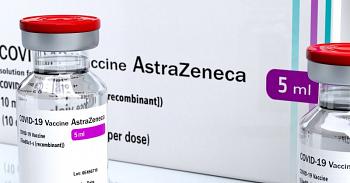U.S. Health Officials Accuse AstraZeneca of Misrepresenting Efficacy Data
In a “highly unusual” statement Tuesday, a U.S. health agency said AstraZeneca may have included “outdated information” in its clinical trial results, which may have led to the vaccine maker providing the public with an incomplete view of its efficacy data.
The statement by the National Institute of Allergy and Infectious Diseases (NIAID) came less than a day after the pharmaceutical company said its vaccine was 79% effective against COVID and 100% effective against severe or critical disease and hospitalization.
“We urge the company to work with the Data and Safety Monitoring Board (DSMB) to review the efficacy data and ensure the most accurate, up-to-date efficacy data be made public as quickly as possible,” the NIAID said.
AstraZeneca immediately responded saying the numbers published Monday were based on a “pre-specified interim analysis with a data cut-off” of Feb. 17. The company promised to “immediately engage with the DSMB to share their primary analysis with the most up-to-date efficacy data” and to issue the results of the primary analysis within 48 hours.
The DSMB is an independent expert group that sees trial data before the pharmaceutical companies, the doctors running the trials or even the U.S. Food and Drug Administration (FDA), according to CNN. It has the authority to advise a company of positive interim findings or to halt a trial over safety concerns, which is what happened to AstraZeneca last September after a study participant developed neurological symptoms.
In an interview with Good Morning America, NIAID Director Dr. Anthony Fauci explained the sequence of events. Fauci said that the DSMB and AstraZeneca reviewed the trial data together before the vaccine maker issued its press release. But when AstraZeneca issued its press release, the DSMB “got concerned and wrote a rather harsh note to them and with a copy to me saying that in fact the data that was in the press release were somewhat outdated and might in fact be misleading a bit and wanted them to straighten it out.”
That’s when NIAID issued its statement advising AstraZeneca that it “better get back with the DSMB to make sure that the correct data gets put into a press release,” Fauci said. Fauci said that DSMB picking up this discrepancy is really “a safeguard.”
In a statement to the Science Media Centre in the UK, Stephen Evans, professor of pharmacoepidemiology at the London School of Hygiene and Tropical Medicine, said that members of the DSMB sometimes disagree with investigators over vaccine trial results, but usually in private. “So this is unprecedented in my opinion,” Evans said.
As analysts scrambled to interpret the statement, one scientist claimed the U.S. government stopped just short of accusing AstraZeneca of manipulating its trial data.
“This is a highly unusual statement by the U.S. National Institute of Allergy and Infectious Diseases (NIAID). It comes close to accusing Oxford/AZ of having wilfully misrepresented some results from their recent U.S. vaccine trial,” tweeted Francois Balloux, professor and director of the UCL Genetics Institute.





